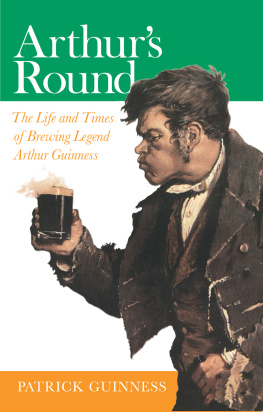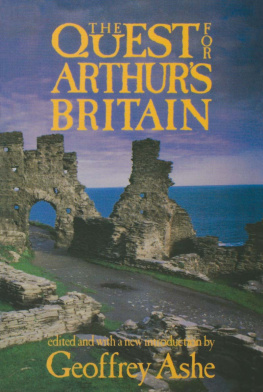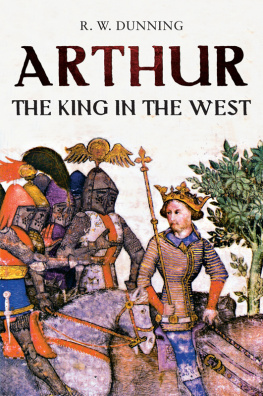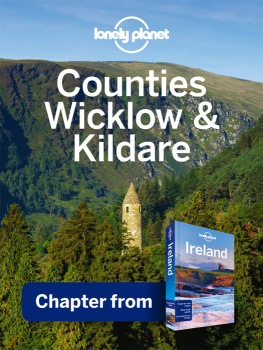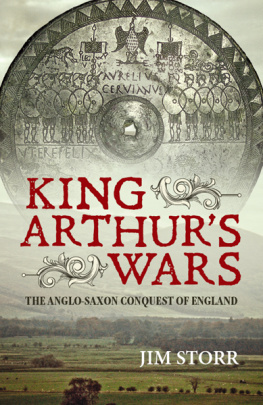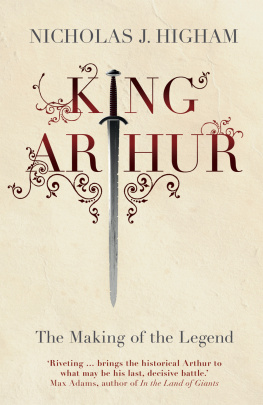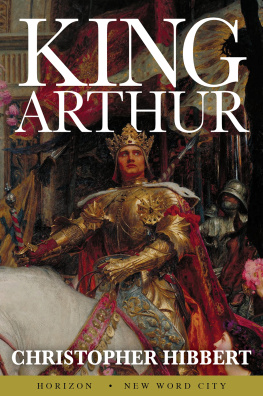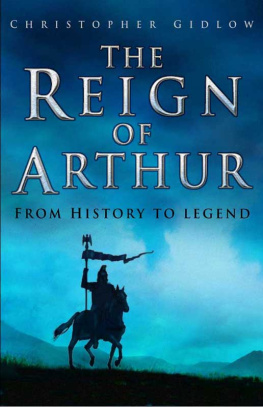Arthurs Round
Irelands best-known Irishman, his name and signature in every household and village in Ireland, and many abroad, is also the least known. Part of Dublin life for over two centuries, both family and brewery have passed into legend, but their origins have been obscured. Here, in the round, these origins are explored and the story of the man and his background told for the first time. Various sources are examined and myths about Arthur laid to rest, many of which were allowed to continue by his descendants. This narrative traces the familys origins in Ulster, Gaelic and Protestant-Irish tenant-farmers from humble backgrounds on both sides, when Arthurs father Richard appears as a household agent in Celbridge, Co. Kildare, in 1722 to work for Arthur Price, the Protestant Dean of Kildare. In 1755 Arthur takes on a brewery in Leixlip and joins the Kildare Friendly Brothers dining club in 1758, marrying and moving to St Jamess Gate in 1759/60 where the business developed. By 1781 he is a patriarch and member of liberal patriot political groups, diversifying his assets to preserve his wealth in unsettled times. Of a generation with Edmund Burke and Richard Brinsley Sheridan, this wily businessman built an empire that endured and expanded.
Family and social history combine with an account of the brewing process and descriptions of economic and political backgrounds in a rapidly developing Ireland, giving a rich weave to this tapestry. Visual sources include maps, rare original documents, prints, and photographs of associated houses and places, people, and artifacts. The result is a fascinating contextual portrait of an enigmatic figure, the founding father of one of Irelands most powerful dynasties. Patrick Guinness is a direct descendant of Arthur Guinness and worked in the city before turning his hand to a successful writing and lecturing career.
PATRICK GUINNESS was born in Dublin. After working in the London financial world he returned to Ireland in the 1990s. In addition to his research on Arthur Guinness, he is a life-long student of Dublins history, and he has recently become involved in researching Irish genetics. He has worked on several biographies and arthistorical books and has been published by Kildares history journal.
Contents
Illustrations
P LATE
Preface
A RTHUR GUINNESS (1725-1803) is one of those iconic Irishmen about whom very little is known by the public at large. Whether from family or brewery myth-making or from his keeping a low profile, certain key facts and myths have been repeated until a wheel-rut of anecdote has emerged that has become history. His name and signature are seen in and on nearly every Irish village and are widely known abroad. His business and its social offshoots have formed an integral part of Dublin life for over two centuries. Two and a half centuries after his first brewing on his own account in 1755, it is time to consider him and the Ireland in which he lived. Very few biographies have been published about Irish people of his time who were not politicians, so, apart from being the first publication to consider Arthur himself in the round, it is also a tale of grey areas.
Since Howard and Henry Guinnesss useful notes were assembled and typed up between 1922 and 1934, and one of family trees prepared in three editions by Brian Guinness between 1955 and 1985, a clutch of books has been written on the family and brewery in recent decades, focusing largely on the application of wealth over the last two centuries. These include a brief brewery history (1955) and works by George Martelli (1957), Desmond Moore (1959), P. Lynch and J. Vaizey (1960), Peter Walsh (1980), Frederic Mullally (1981), Jonathan Guinness (1997), Derek Wilson (1998) and Michele Guinness (1990, 1999), together with some general television documentaries in the past few years.
All these contain inaccuracies that the brewerys water supply came from the River Liffey is a well-known one. To be fair, most of these studies deal with the whole history of the entire family and not just Arthur, and in spanning over two hundred years they rather rush on past him to the main focus of their sagas. The volume by Lynch and Vaizey was an official brewery history up to 1876, well prepared on the economic story but short on local and social history, and it has been heavily plagiarized. It should be read alongside L.M. Cullens 1972 book on the Irish economy after 1660, which has a wider angle. Essays by the Trinity College Dublin lecturer Sean Dunne (2003) have some novel and interesting interpretations and were based perhaps on his sociology dissertation at University College Dublin, now lost. Unfortunately he has felt unable to share the notes and references that would support his views. Dr Tanya Cassidy could not be contacted by post or email about her research. Recent analyses by Frederick Aalen (1990), S.R. Dennison and Oliver MacDonagh (1998), Peter Malpass (1998), Al Byrne (1999), Dr Andrew Bielenberg (2003) and Tony Corcoran (2005) concentrate usefully on the brewery as a social and economic phenomenon. Brenda Murphy and Kerry Byrne are, at the time of writing, working separately on the history of the beer itself.
Details apart, none of these many writers on Guinness has looked at its creator in any depth; this is the first attempt. In the process of the story I have considered their analyses and disagree on some points; the reader must decide if I am reasonable or not. Naturally, I have had to avoid ancestor-worship. Other mistakes have arisen from modern advertising and television, which is generally amusing but which has its own priorities, and the internet, which has thrown up a host of notes. Having its commercial aspect the heritage industry feeds off, but must not be confused with, history. It seemed right that some analysis and attempt at chronology should be done outside of the restrictions of commercial, academic or government sponsorship perhaps via the internet but the volume of new material suggested it be preserved in book form.
Today, school-examination papers in Ireland mention Arthur, and the Guinness website describes him as a magic ingredient. But how much of what we know about him is based on publicity generated over the last century by my own family? If he is seen today as an icon of Georgian Dublin, how iconic would he have been in his own time? The book examines this issue.
Arthurs political views are also examined for the first time, and can been seen to have been aligned with those of Richard Brinsley Sheridan and Edmund Burke. All three had a better grasp of the relationship between Britain and Ireland than most of their contemporaries. They understood the need for cautious political progress without bloodshed. This aspect of Arthurs life has never been fully explored. Henry Grattan was his man. The world of the Protestant Ascendancy was a two-way street for an indigenous Irishman if he chose to play by the rules. In its Volunteer phase Arthurs political leanings may be linked to the Duke of Leinsters liberal stance. His patriot tendencies thus come into clearer focus, and I attempt to explain that unsuccessful formula for Irish political conciliation. Towards the end of his life his views on Catholic emancipation have been classified by Professor R.B. McDowell as extreme liberal, yet he would not support violent revolution to promote change. One aim of biography is to examine the subject as a man of his time; while the man can be described, every reader will have a different idea of the time.
The most useful sources on his parents important and largely ignored years living in and near Celbridge (16901764) are the notes of the late Lena Boylan. A stalwart of the Kildare Archaeological Society, she had read hundreds of letters to and from local people of all backgrounds. She was a compendium of the entire history of Celbridge and its recorded inhabitants from the earliest times up to date. Living on the Main Street and knowing every inch of the village, she could correlate all the names and mapless plots of land mentioned in old title deeds. She copied her notes to me in 1997 and assembled details on the local members of Arthurs dining club, the Friendly Brothers of St Patrick. The clubs minute book for the years 1777 to 1791 was kindly made available for the first time in 2000, unlocking a wealth of material. This unknown local history colours and enlarges the better-known story of the city brewer.
Next page
